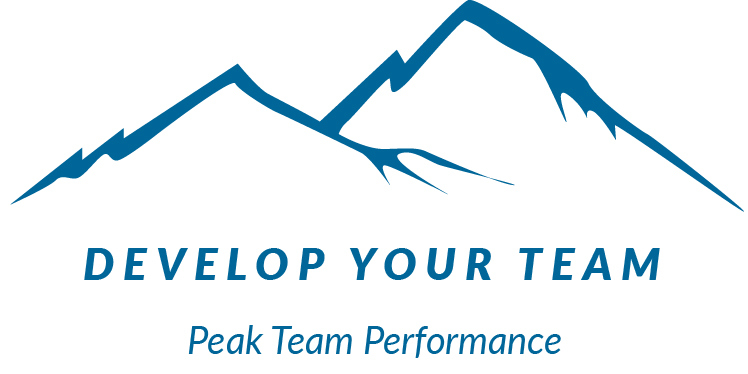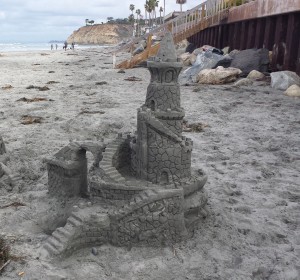Have you ever built a sandcastle at the beach or in a playground? Did it turn out exactly as you wanted it to? Bringing your sandcastle vision to life is lIke achievement of any goal, it’s not always as easy as it may appear to an outside onlooker.
The type of sandcastle you see here is not a casual undertaking. Success depends on the same strategies needed to achieve goals in other areas of life and work: vision, planning, resources, collaboration, adaptability, and tenacity.
Vision:
Do you have a clear vision of the outcome you are trying to realize? What will it look, feel, smell, taste, and sound like to have achieved your goal? The clearer your vision, the more you will be drawn toward it and the greater the likelihood of achieving it. Consider the old proverb: “if you don’t know where you’re going, any road will get you there.” Are you trying to get just anywhere, or do you have a specific destination in mind? What kind of sandcastle do you want to create? Is your team envisioning the same sandcastle that you are?
Planning:
What are the steps you need to take, now that you are clear on your goals? What is your overall timeline, and are there interim milestones that need to be met? How will you sequence the steps? What role will each team member play? What other support might you need?
Resources:
Do you have the resources you need to be successful? Supplies, funding, training? Do you have the right people on your team, with the right skills and attitudes? Are all of your resources organized in a way that supports you and your goals?
Collaboration:
Are team members working in their areas of strength? While we all have weaknesses, those are minimized when workng together as a team, at the same time that each individual’s strengths can be maximized. Have you ever seen the teamwork exhibited by children building a sandcastle while the tide is coming in? It’s remarkable to see what they can accomplish. Also consider who else can help you as you work toward your goals. Collaborating outside your immediate team makes everyone stronger.
Adaptability:
No matter how clear your vision is or how well you’ve planned, there will likely still be times when you need to adapt. The unexpected happens, circumstances change. Be mentally prepared to adapt and foster this mindset with your team. Ask yourself, “What could go wrong?” during your planning stages.
Tenacity:
Challenges are expected on the way to achieving any goal. Don’t give up! Take advantage of your team for support when times are difficult. Even though you may experience a setback or two while building your sandcastle, persistence will help you to ultimately achieve your goals.
What strategies have helped you to successfully achieve goals?


